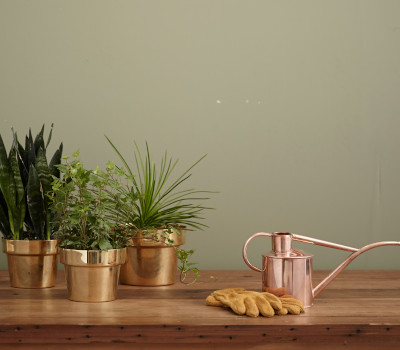First things first, familiarise yourself with your rental agreement. It's essential to understand what's permitted concerning outdoor modifications or landscaping. If it's not clear, have a conversation with your landlord to clarify any grey areas. This proactive approach not only ensures your gardening efforts won't lead to any unwelcome surprises, but it also demonstrates respect for the property and consideration for your landlord's guidelines.
Once you've got the green light, it's time to select the best garden for your space. Consider your available sunlight, space, and the type of plants you wish to grow. Sunny balconies are perfect for herbs and vegetables in pots, while shady areas are ideal for ferns and shade-loving flowers. Always consider the portability and maintenance of your garden, ensuring it fits well with your rental.
Depending on your living situation, you might need to be flexible with your gardening methods. Container gardens, raised beds, and vertical gardens are excellent options for renters. These methods are portable, versatile, and cause minimal disruption to the property. They also allow you to take your beloved plants with you if you relocate, ensuring your investment in plants and gardening accessories isn't lost when you move.
Even if you only have a small space, you can still host a vibrant garden. Opt for compact, high-yield plants like herbs, salad greens, or cherry tomatoes, which thrive in confined areas. Use vertical gardening techniques such as wall planters or trellises to maximise your space. With thoughtful planning and innovative solutions, you can transform even the smallest space into a lush, green oasis.
Proper care ensures a thriving garden. Invest in good potting soil, choose plants suited to your climate and light conditions, and establish a regular watering and feeding routine. Consider starting a small composting system to naturally enhance your soil and promote healthier plant growth.
Finally, if your rental doesn’t have suitable space for gardening, consider joining a local community garden. These shared spaces provide plots where you can grow your plants alongside others, fostering connections with neighbours and building a sense of community. Alternatively, consider starting a small community garden in a shared courtyard or rooftop with your neighbours.
In conclusion, renting doesn't mean you can't enjoy the joys of gardening. With a little creativity and flexibility, you can cultivate a thriving garden that enhances your home while respecting your rental agreement.











